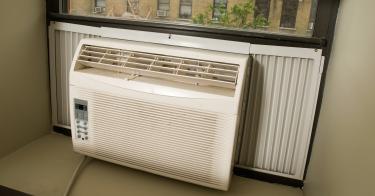Sweltering summer heat means families across the country have their air conditioners on full blast – in their homes and in their cars. Unfortunately, if the Senate ratifies the Kigali Amendment to the Montreal Protocol, the price tag for running, repairing and replacing your AC could get a whole lot higher.
The 1987 Montreal Protocol was an agreement to phase out production of chlorofluorocarbons (CFCs), believed harmful to the ozone layer. The Kigali Amendment is a United Nations treaty that would ban CFCs' replacement, hydrofluorocarbons (HFCs) and substitute hydrofluoro-olefins (HFOs).
But a phase-out won't come cheap. The Kigali Amendment would impose significant costs on American households and businesses.
New air conditioning units for home- and car-owners will be considerably more expensive. In addition, maintenance and repairs of the hundreds of millions of existing HFC-using units would likely increase as the supply of HFCs shrinks and prices rise.
Cato Institute's Dr. Pat Michaels illustrated the costs a typical American family would incur by comparing a cheap HFC unit to an expensive HFO (Solstice) one."HFC-134a, out of patent and made in China, goes for a bit under $7 per pound" Michaels writes. "Solstice costs $71. A 3500-square-foot house's heat pump will require approximately 15 pounds, or $105 worth of HFC-134a, but a whopping $1,056 worth of Solstice, and that's without installer markup. A similar ratio applies to the three pounds that a car air conditioner uses."
While prices of HFC replacements are likely to fall over time with more widespread use, the cost disparity will still be significant. Even if the costs for HFOs are cut in half, that's potentially hundreds of dollars more for a family to fix or replace an air conditioner.
Higher prices won't be restricted to just your house or vehicle AC unit, either. Commercial air conditioning units would also be subject to the phase-out, which would adversely harm businesses nationwide. As Laura Mandala, CEO of Mandala Research, said of the impact of the phase-out on the hotel industry, "Alternatives will be more expensive and may require equipment replacement and modification. It is not unreasonable to expect that the costs associated with this will ultimately get reflected in hotels' average daily rate."
Millions of small businesses that rely on air conditioning and/or refrigeration, such as restaurants and convenience stores, will be similarly impacted – as will their customers. Businesses will pass those costs on to consumers. Or if a company can absorb the costs, higher prices will prevent businesses from investing and expanding. Either way, it's a losing deal.
Failing to ratify Kigali wouldn't prevent companies from selling Kigali-compliant products to other countries that have chosen to phase out HFCs. So long as a domestic company chooses to produce HFOs or another compliant chemical, they could sell their product to any of those countries. That includes selling in the U.S.
Instead, refusing to ratify Kigali will ensure that Americans have more choices. Homeowners or businesses buying or repairing an AC unit will have the option of purchasing HFCs or costlier HFOs.
Unsurprisingly, the air-conditioning and refrigeration industry has broadly supported ratification of Kigali. The amendment offers a clear opportunity for profit, as households and businesses are forced to purchase new air-conditioning and refrigeration systems that use new alternative coolants to replace the HFC units being phased out.
But that's not the way to create jobs and grow the economy. If it were, the U.N. should get to work on a treaty that replaces your windows with break-proof glass. Think of all of the new business for glass and repair shops! In the world of refrigerants, HFCs are the unbroken, perfectly usable window.
In fact, Kigali has little to do with protecting the ozone layer. Studies conducted in the 1990s found that HFCs had zero effect on ozone depletion. A 2015 NASA study says the ozone depletion factor of HFCs isn't nothing, but isn't cause for alarm, either. NASA estimates that HFCs will cause a 0.035 percent decrease in ozone by 2050. Such a very weak ozone-depleting factor is not justification for a costly, widespread ban.
President Donald Trump shouldn't bother sending the Kigali Amendment to the Senate for ratification. But if he does, the Senate should subsequently reject it. Major air-conditioning and refrigerating companies may not like it, but your wallet will.
This piece originally appeared in the Sacramento Bee




